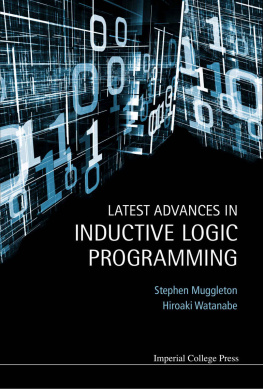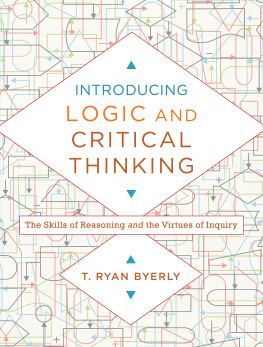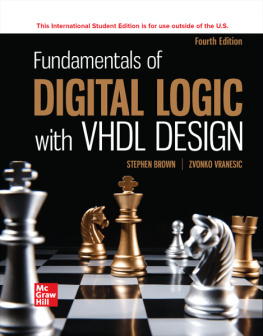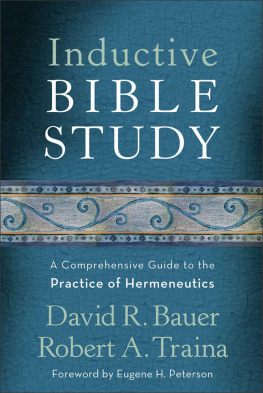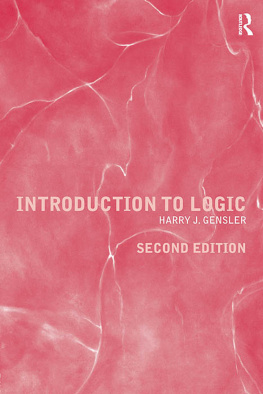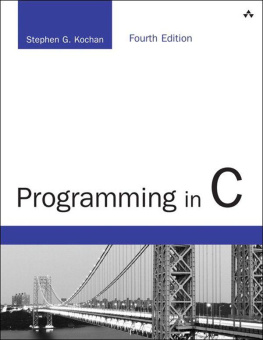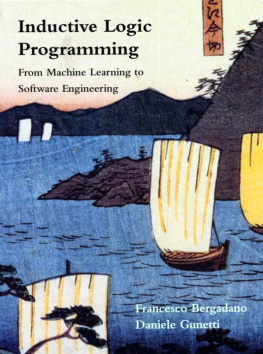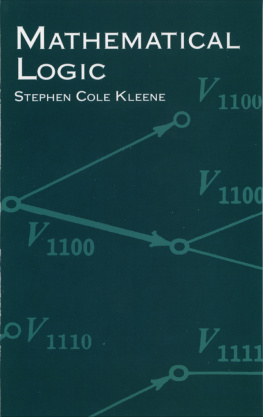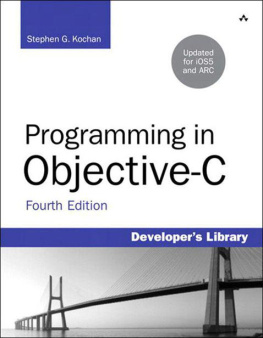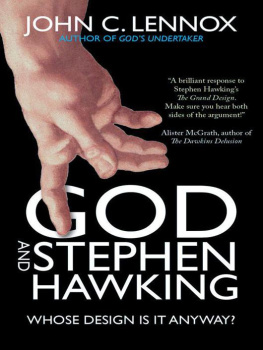Stephen H Muggleton - Latest Advances in Inductive Logic Programming
Here you can read online Stephen H Muggleton - Latest Advances in Inductive Logic Programming full text of the book (entire story) in english for free. Download pdf and epub, get meaning, cover and reviews about this ebook. year: 2014, publisher: Imperial College Press, genre: Children. Description of the work, (preface) as well as reviews are available. Best literature library LitArk.com created for fans of good reading and offers a wide selection of genres:
Romance novel
Science fiction
Adventure
Detective
Science
History
Home and family
Prose
Art
Politics
Computer
Non-fiction
Religion
Business
Children
Humor
Choose a favorite category and find really read worthwhile books. Enjoy immersion in the world of imagination, feel the emotions of the characters or learn something new for yourself, make an fascinating discovery.
- Book:Latest Advances in Inductive Logic Programming
- Author:
- Publisher:Imperial College Press
- Genre:
- Year:2014
- Rating:4 / 5
- Favourites:Add to favourites
- Your mark:
- 80
- 1
- 2
- 3
- 4
- 5
Latest Advances in Inductive Logic Programming: summary, description and annotation
We offer to read an annotation, description, summary or preface (depends on what the author of the book "Latest Advances in Inductive Logic Programming" wrote himself). If you haven't found the necessary information about the book — write in the comments, we will try to find it.
Latest Advances in Inductive Logic Programming — read online for free the complete book (whole text) full work
Below is the text of the book, divided by pages. System saving the place of the last page read, allows you to conveniently read the book "Latest Advances in Inductive Logic Programming" online for free, without having to search again every time where you left off. Put a bookmark, and you can go to the page where you finished reading at any time.
Font size:
Interval:
Bookmark:
LATEST ADVANCES IN
INDUCTIVE LOGIC PROGRAMMING
LATEST ADVANCES IN
INDUCTIVE LOGIC PROGRAMMING
Stephen H. Muggleton & Hiroaki Watanabe
Imperial College London, UK

Published by
Imperial College Press
57 Shelton Street
Covent Garden
London WC2H 9HE
Distributed by
World Scientific Publishing Co. Pte. Ltd.
5 Toh Tuck Link, Singapore 596224
USA office: 27 Warren Street, Suite 401-402, Hackensack, NJ 07601
UK office: 57 Shelton Street, Covent Garden, London WC2H 9HE
Library of Congress Cataloging-in-Publication Data
Muggleton, Stephen, author.
Latest advances in inductive logic programming / Stephen Muggleton, Imperial College London, UK, Hiroaki Watanabe, Imperial College London, UK.
pages cm
Includes bibliographical references and index.
ISBN 978-1-78326-508-4 (hardcover : alk. paper)
1. Logic programming. 2. Induction (Logic) 3. Machine learning. I. Watanabe, Hiroaki, 1969
author. II. Title.
QA76.63.M84 2014
006.3'1--dc23
2014033096
British Library Cataloguing-in-Publication Data
A catalogue record for this book is available from the British Library.
Copyright 2015 by Imperial College Press
All rights reserved. This book, or parts thereof, may not be reproduced in any form or by any means, electronic or mechanical, including photocopying, recording or any information storage and retrieval system now known or to be invented, without written permission from the Publisher.
For photocopying of material in this volume, please pay a copying fee through the Copyright Clearance Center, Inc., 222 Rosewood Drive, Danvers, MA 01923, USA. In this case permission to photocopy is not required from the publisher.
Typeset by Stallion Press
Email:
Printed in Singapore
This book represents late-breaking papers associated with the 21st International Conference of Inductive Logic Programming (ILP 2011) which was held in Cumberland Lodge, Great Windsor Park and marked 20 years since the first ILP workshop in 1991. During this period the conference has developed into the premier forum for work on logic-based machine learning. The submission procedure for the conference followed a similar format to that of previous conferences, and was particularly close to that used in ILP 2006. Submissions were requested in two phases. The first phase involved submission of short papers (six pages) which were then presented at the conference and posted on the conference website prior to the conference itself. In the second phase, reviewers selected papers for long paper submission (15 pages maximum). These were assessed by the same reviewers, who then decided which papers to include in the Machine Learning Journal Special Issue and Proceedings. The post-conference proceedings of ILP 2011 has been published as Volume 7207 in the Springer Lecture Notes in Artificial Intelligence.
An overview of this book is as follows. contains Applications of ILP in the domains of Game Theory, Robotics, Data Mining, Search Engine, Cosmetic Product Selection, Mobile Phone, Biology, and Ecology. This wide variety of applications characterises the diversity of real-world applications of ILP.
In , attempts for extending ILP to Probabilistic Logical Learning are presented. Probabilistic extensions of ILP have been extensively studied over the last decade. These five papers indicate some of the latest developments in this sub-area.
makes hypothesis search more expressive by analysing statistical aspects of the background knowledge. The third paper studies the learning of dependent concepts in order to induce model-transformation rules in the automation of model-driven data warehouses. The last paper is on Graph Contraction Pattern Matching problems in a domain of graph mining. This paper combines Information Theory tools with relational learning.
We turn to Theory papers in , in which a novel method to machine learn patterns in formal proofs is discussed, using statistical machine learning methods. The second paper investigates the issue of whether ILP can deal with incomplete and vague structured knowledge.
In , two attempts at Logical Learning are reported. The first attempt concerns efficient higher-order logical learning. The authors empirically show that the proposed class of higher-order logic outperforms the existing higher-order machine learning system, -Progol. The second paper studies automatic invention of functional abstractions. The authors approach is implemented in the KANDINSKY system using an algorithm that searches for common subterms over sets of functional programs.
. Relational data is derived from match statistics.
The variety of approaches and applications within the book gives an insight into the vibrancy and maturity of the field.
S. H. Muggleton and Hiroaki Watanabe
The 21st International Conference of Inductive Logic Programming 2011 was held at Cumberland Lodge in the UK from 31st July to 3rd August 2011 under the auspices of the Department of Computing, Imperial College London. In addition to the many technical paper presentations, the invited talks this year were given by a distinguished group of Artificial Intelligence researchers, namely Hector Geffner, Toby Walsh and Richard Sutton.
We gratefully acknowledge Syngenta Ltd for supporting the applications prize, and the Machine Learning Journal for supporting the theory prize.
Stephen H. Muggleton and Changze Xu
Jianmin Ji and Xiaoping Chen
Ane Vavpeti and Nada Lavra
Jos Carlos Almeida Santos and Manuel Fonseca de Sam Bento Ribeiro
Hiroyuki Nishiyama and Fumio Mizoguchi
Andreas Markitanis, Domenico Corapi, Alessandra Russo and Emil C. Lupu
Mahito Sugiyama, Kentaro Imajo, Keisuke Otaki and Akihiro Yamamoto
Beau Piccart, Hendrik Blockeel, Andy Georges and Lieven Eeckhout
Barthelemy Dworkin, Andrei Doncescu, Jean-Charles Faye and Katsumi Inoue
Fabrizio Riguzzi and Terrance Swift
Waleed Alsanie and James Cussens
Bogdan Moldovan, Martijn van Otterlo, Plinio Moreno, Jose Santos-Victor and Luc De Raedt
Man Zhu and Zhiqiang Gao
Filip elezn
Andreas K. Fidjeland, Wayne Luk and Stephen H. Muggleton
Orlando Muoz Texzocotetla and Ren Mac Kinney Romero
Moez Essaidi, Aomar Osmani and Cline Rouveirol
Takashi Yamada and Takayoshi Shoudai
Nicola Di Mauro, Teresa M.A. Basile, Stefano Ferilli and Floriana Esposito
Ekaterina Komendantskaya
Francesca A. Lisi and Umberto Straccia
Niels Pahlavi and Stephen H. Muggleton
Robert J. Henderson and Stephen H. Muggleton
Yoshihisa Shiina and Hayato Ohwada
Jan Van Haaren and Guy Van den Broeck
Stephen H. Muggleton and Changze Xu
Computing Department, Imperial College London, UK
While there has been a long history of applying machine learning to game playing, our approach differs by attempting to provide a general approach to learn complete winning strategies for a group of combinatorial games and the first time to apply ILP (inductive logic programming) to learn complete and correct game strategies. Instead of learning the winning moves under different game states, the learning problem we propose is to learn a classifier for P-positions, in which the next player has at least one minimax winning move. Combining such a classifier with a move generator produces a winning strategy. We report the predictive accuracy curves of learning the positions for winning strategies of a range of combinatorial games. In each of the six combinatorial games 100% accurate prediction is achieved after presenting, at most, 26 randomly sampled examples of play. These results were averaged over ten independently sampled trials. We also report the predictive accuracy curves of learning the positions for the winning strategy of Nim using artificial neural network (ANN), support vector machine (SVM) and case-based reasoning (CBR). Even with 200 randomly sample examples, 100% predictive accuracy is not achieved in any case by ANNs, SVMs and CBRs.
Next pageFont size:
Interval:
Bookmark:
Similar books «Latest Advances in Inductive Logic Programming»
Look at similar books to Latest Advances in Inductive Logic Programming. We have selected literature similar in name and meaning in the hope of providing readers with more options to find new, interesting, not yet read works.
Discussion, reviews of the book Latest Advances in Inductive Logic Programming and just readers' own opinions. Leave your comments, write what you think about the work, its meaning or the main characters. Specify what exactly you liked and what you didn't like, and why you think so.

